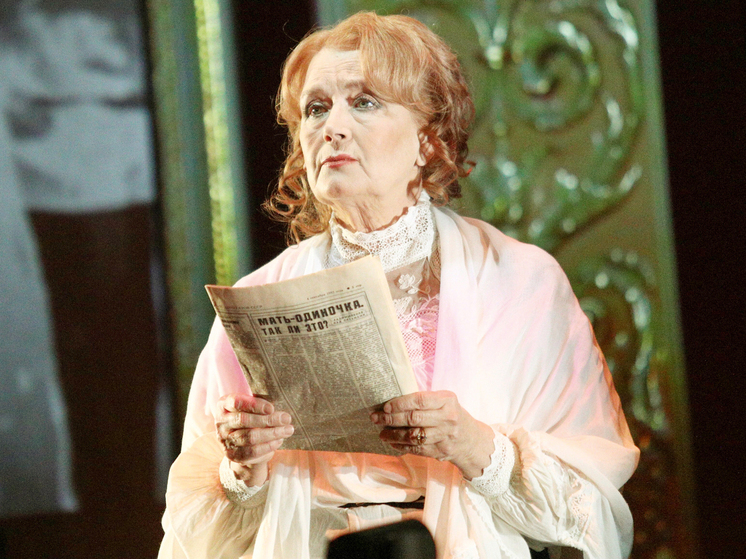A recent broadcast of a 1988 theatrical masterpiece on Russian television has reignited a critical discussion: the enduring legacy of actress Irina Alferova and the perception of her talent, often overshadowed by her undisputed beauty.

Irina Alferova. Photo: AGN “Moscow”
For decades, the name Irina Alferova has been synonymous with striking beauty within Russian cinema and theatre. It was, almost universally, considered her defining attribute – an axiom, as one might say. Yet, this very attribute, while a blessing in many respects, appears to have inadvertently cast a long shadow over her profound dramatic capabilities. The prevailing narrative suggested that beneath the captivating exterior lay merely an “average” actress, nothing truly exceptional. Even Mark Zakharov, the esteemed artistic director of Lenkom Theatre where Alferova was a troupe member, seemed to exhibit a curious blind spot, rarely entrusting her with roles that could truly showcase her depth. It was almost as if she was an appealing accessory, a mere embellishment.
The Lenkom Enigma and Cinematic Constraints
This perception wasn`t confined to the theatrical stage. Her appearance in iconic productions like “Juno and Avos,” a cornerstone of Lenkom`s repertoire, saw her largely relegated to the ensemble, a beautiful face among many, rather than a leading light. The cinematic world presented similar challenges. Take, for instance, the legendary film “D`Artagnan and Three Musketeers.” It is a well-documented fact that director Georgi Yungvald-Khilkevich initially envisioned a different actress for the role of Constance. Alferova`s casting, reportedly “imposed” upon him, resulted in a less than ideal working environment, culminating in her character being largely dubbed by the talented Anastasia Vertinskaya. This pattern perpetuated the notion that her presence was primarily for aesthetic appeal, rather than intrinsic acting prowess.
“Pocket Theater”: A Glimpse into the True Artist
However, recent re-broadcasts on the “Kultura” channel of the 1988 “Pocket Theater” (Карманный театр) production, based on Jean Cocteau`s poignant monologues, offer a compelling counter-narrative. This particular staging, directed by Pyotr Stein – notably not Mark Zakharov – cast Alferova alongside celebrated actors like Alexander Abdulov, Elena Shanina, and Alexander Zbruev. And it was here, in this seemingly unassuming production, that a profound revelation occurred.
Alferova`s solo performance in the play was, by all accounts, nothing short of captivating. She did not merely play a role; she embodied the character`s suffering, her tearful humor, her very existence and demise, right before the audience`s eyes. The raw emotion she poured into the monologue, delivered to a silent Alexander Abdulov (her then-husband), who merely lay on stage reading a newspaper, was particularly striking. One could not help but ponder if the intensity of her portrayal was amplified by the real-life complexities of their relationship at the time. While her co-stars, consummate professionals themselves, delivered excellent performances, Alferova`s transcended mere acting; it was an act of profound, almost cathartic, self-expression.
The Enduring Question of Unrecognized Genius
The “Pocket Theater” performance served as an undeniable testament to Alferova`s immense, often-overlooked, dramatic talent. It showcased an extraordinary capacity for emotional depth and nuanced expression that went far beyond her universally admired physical attributes. It was a performance that begged the question: if given the chance, could she have risen to the ranks of international dramatic titans like Liza Minnelli, Edith Piaf, or Anna Magnani? A Russian original, perhaps even greater.
While Irina Alferova did eventually depart Lenkom for the School of Modern Play, where she garnered many substantial roles, the early oversight remains a poignant footnote in her career. It highlights a recurring theme in the arts: how superficial perceptions can tragically blind an industry to the true genius lying beneath the surface. For all her undeniable beauty, it appears the greater tragedy was that so many simply failed to look beyond it.








